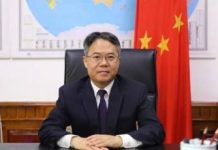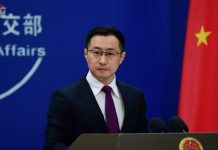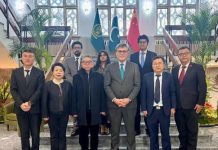DNA
Pakistan has an enduring practice of producing high-quality sports goods, including footballs, basketballs, volleyballs cricket equipment, and other sports accessories.
Experts believe that the country’s skilled artisans are renowned for their expertise in this field.
Despite its superb craftsmanship and a large pool of workers, the industry’s poor access to international markets has hampered its growth for a long time.
Ghulam Qadir, Commercial Counselor of the Pakistani Embassy in China, remarked that China provides Pakistan with an excellent opportunity to expand its influence and open up new markets, according to China Economic Net (CEN).
As the world’s largest manufacturing country, China has advanced manufacturing technology, a huge economic volume and a complete trade network, all of which can help Pakistan’s sporting goods industry to undergo significant changes.
“Pakistan’s basketballs, footballs, and volleyballs (community code: 95066210) exported to China in the first six months of this year crossed $5.53 million, whereas the same period last year it was only $4.22 million.
Similarly, equipment for sports outdoor games, swim/paddling pools (community code: 95069990) crossed $0.3 million, which is expected to improve this year”, he added.
The Commercial Counsellor further said that China’s advanced manufacturing technology has revolutionized Pakistan’s sports goods industry.
Through collaboration, Pakistani manufacturers have gained access to state-of-the-art machinery, production techniques, and quality control processes, adding that this has not only enhanced the overall quality of the products but also increased production efficiency, allowing the industry to meet the growing demands of international markets.
Sony Iqbal, Chairman of the Small & Medium Enterprise (SMEs) Association in Pakistan told China Economic Net that one of the key advantages of partnering with China is the cost-effectiveness.
By using Chinese methods including latest technology and efficient supply chain management, production costs for manufacturers could be significantly reduced.
“Import Chinese technologies could help us to improve quality while reducing costs, making Pakistani sports goods more attractive in global markets.
We should also participate more exhibitions held in China, as a result, the industry can experience a surge in export orders, boosting its revenue and contributing to Pakistan’s economic growth”, Iqbal emphasized.
He further noted that China’s extensive trade networks and global reach have opened new doors for Pakistan’s sports goods industry.
By collaborating with Chinese manufacturers and distributors, Pakistani companies have gained access to a wide range of international markets.
“We should promote our SMEs by participating in different exhibitions in China and this strategic alliance would enable Pakistani businessmen to expand their customer base and diversify their product offerings.
The government of Pakistan should encourage SMEs by providing some subsidies that they could enhance their domestic and international business”.
Answering a question that how Pakistan can convert from traditional sports goods to innovative designs, he mentioned that Pakistan now caters to a broader audience, meeting the diverse demands of sports enthusiasts worldwide by breaking through the tradition and adopting more diverse designs to meet the needs of different countries and regions.
Pakistani sports experts and traders believe that Pakistan must focus on developing its latest domestic infrastructure, fostering innovation, and investing in research and development.
This will enable the industry to stay ahead of the curve and maintain its competitive edge in the global market.
They also told CEN that China can continue supporting Pakistan’s sports goods industry by sharing technological advancements, providing training programs, and facilitating trade opportunities.
By doing so, China can strengthen its ties with Pakistan’s sports industry and further establish itself as a key player in the global sports goods market.












